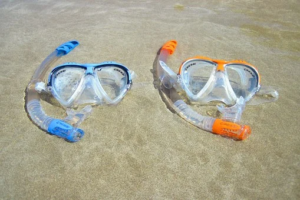The thought of breathing underwater can be daunting. But scuba diving can be a thrilling adventure and a way to discover some of the fascinating creatures and sites on the ocean floor. Thanks to strict safety standards, scuba diving is a popular activity practiced by people of all ages. Scuba diving education is one of the best things to put a worried mind at ease. Learning about the sport of scuba diving will help you prepare for a dive and increase your chances of having fun and enjoying the experience from beginning to end.
So, if you have been thinking of trying scuba diving or want to give it a go, here are some tips that will guide you in planning your first dive:
Get The Right Diving Gear
Before planning your dive, you need to get all the required equipment. To avoid complications and costly mistakes later, you must purchase the best scuba diving gear offered by a recognized manufacturer. You can as well visit CozumelScuba.com for more information. The equipment you need will depend on the kind of diving you plan to do. For example, if you are looking for a full-face snorkel mask, be sure that it is approved by the authorities that regulate scuba diving in your area. In countries where SCUBA diving is held, divers must adhere to some safety standards for equipment and procedures.

Learn The Skills
You need to learn the scuba fundamentals like conducting a pre-dive buddy check and understanding proper diving signals. Basic knowledge of underwater terms such as buoyancy, up vs. down, and safe diving practices is also helpful. Try taking an open water course or enroll in a refresher program offered by professional dive training schools that will teach you how to use the equipment correctly and help you get ready for your first low-pressure dive. You should be familiar with standard diving procedures. In an emergency, you will have the skills to summon help and give first aid when necessary.
Obtain An Open Water Certification
If you plan to go scuba diving for the first time, you must get an open water certification. This introductory scuba course will teach you how to use various types of equipment correctly and conduct dives safely. To pass the test, you need to be physically fit enough, show proficiency in using equipment like masks, fins, and snorkel and demonstrate standard diving practices like buddy checks. After completing this course successfully, you can become a certified diver, which entitles you to 12 fun dives and insurance coverage in case of accidents while driving.
Without the certificate, you won’t enjoy many of the benefits that come with being a certified diver, including access to dive sites and any discounts on the various items needed for your dives. To obtain your open water diver license, you need to complete four steps:
1) Complete an approved course
2) Pass a written examination (open water exam)
3) Pass a qualifying swim test
4) Present proof of physical fitness
Plan Your Dive
Before planning a scuba dive, ensure that the water temperature is above 10 C/ 50 F and the visibility is more than 3 meters/10 feet. You should also be aware of essential safety rules, avoid helter-skelter dives, and ensure that the diver’s health condition will not pose a threat to everyone on board. If you want to go scuba diving through an operation offering weeklong dive trips in tropical locations, give them a call at least six months ahead so they can arrange your dives according to your preferences and skill level. If you move around and prefer weekend or day trips, try checking out popular destinations like Sabah, Bali, and Koh Tao, which offer some diving opportunities for beginners who are just entering the sport.
Pace Yourself
You need to stay within the limits of your comfort zone and ease into the activity. Check out local dive sites and pick a suitable place for your skill level. Avoid going too deep, or you might end up having troubles on your shallow dives. It is also essential that you maintain proper buoyancy throughout each dive, avoid running out of air, and ensure that you don’t do anything unsafe for yourself or others around you. Going too fast or exerting yourself beyond your limits may result in overexertion, leading to severe problems such as decompression illness (DCI), nitrogen narcosis, and high levels of stress hormones, even if you feel like doing more.
Scuba diving is an excellent way for people of all ages to enjoy a unique underwater experience while exploring some of the world’s most beautiful corals, fish, and other marine animals. However, before you take part in this exciting activity, you must be adequately equipped with diving gear and have undergone scuba training to ensure safe driving at all times.
